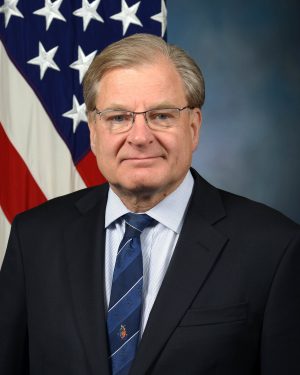By Sami Zaptia.

London, 22 December 2021:
Commenting today on the military manoeuvres in Libya in the run up to the announcement that the planned 24 December 2021 elections will not go ahead, U.S. Special Envoy and Ambassador to Libya Richard Norland urged calm and encouraged steps that can continue to de-escalate the tense security situation in Tripoli or elsewhere in Libya.
‘‘Now is not the time for unilateral actions or armed deployments that risk escalation and unintended consequences detrimental to the security and safety of Libyans. We reiterate UNSMIL’s call for disagreements on emerging political or military matters to be resolved without resorting to violence.
At the same time, work towards elections should be a priority, in line with strong public desires. Libyan leaders, on behalf of the Libyan people, should expeditiously address all legal and political obstacles to hold elections, including finalizing the list of presidential candidates. The United States shares the concern and disappointment of the vast majority of Libyans who expect to have the opportunity to vote for their country’s future.
At this critical moment in Libya’s path forward, it is more important than ever that Libyans are vigilant about the spread of disinformation that only advantages those who wish to disrupt Libya’s future progress.’’
Analysis
Why were the state recognized but not controlled militias manoeuvring?
As it became obvious with the passing of every day that the 24 December 2021 elections were not going to go ahead, tensions began to escalate in Libya. This included tensions amongst Libya’s multiplicity of militias.
The militias that have conducted manoeuvres over the last few days can be roughly split into two main groups. There is the group who are in favour of change, elections and in favour of the elections being held in two days’ time. They believe there needs to be a change in the status quo and that the term of the current Abd Alhamid Aldabaiba’s Government of National Unity ends on 24 December.
The opposing bloc are against the holding of elections and prefer the status quo. They want the Aldabaiba administration to remain in power. Moreover, with the elections having failed to take place, they want the current government to remain in situ until elections take place – whenever that may be. The unelected but selected Aldabaiba shares this interpretation of when his term should end. This is one reason many believe that Aldabaiba, maybe like HoR Speaker Ageela Saleh, is only playing at wanting elections – but in reality, he opposes them.
Whatever the reality is, some militia groups wanted to surround the Prime Minister’s office to protect Aldabaiba and keep him in power, while others wanted to protect it from Aldabaiba and only allow his replacement to enter the office and assume power.
The centrifugal effect of Libya’s elections
The manoeuvres have shown how centrifugal Libya’s elections can be. They mean change and change frightens many stakeholders who fear they will end up net losers out of the process. Meanwhile, those who seek power and influence see the elections as an opportunity to gain power.






